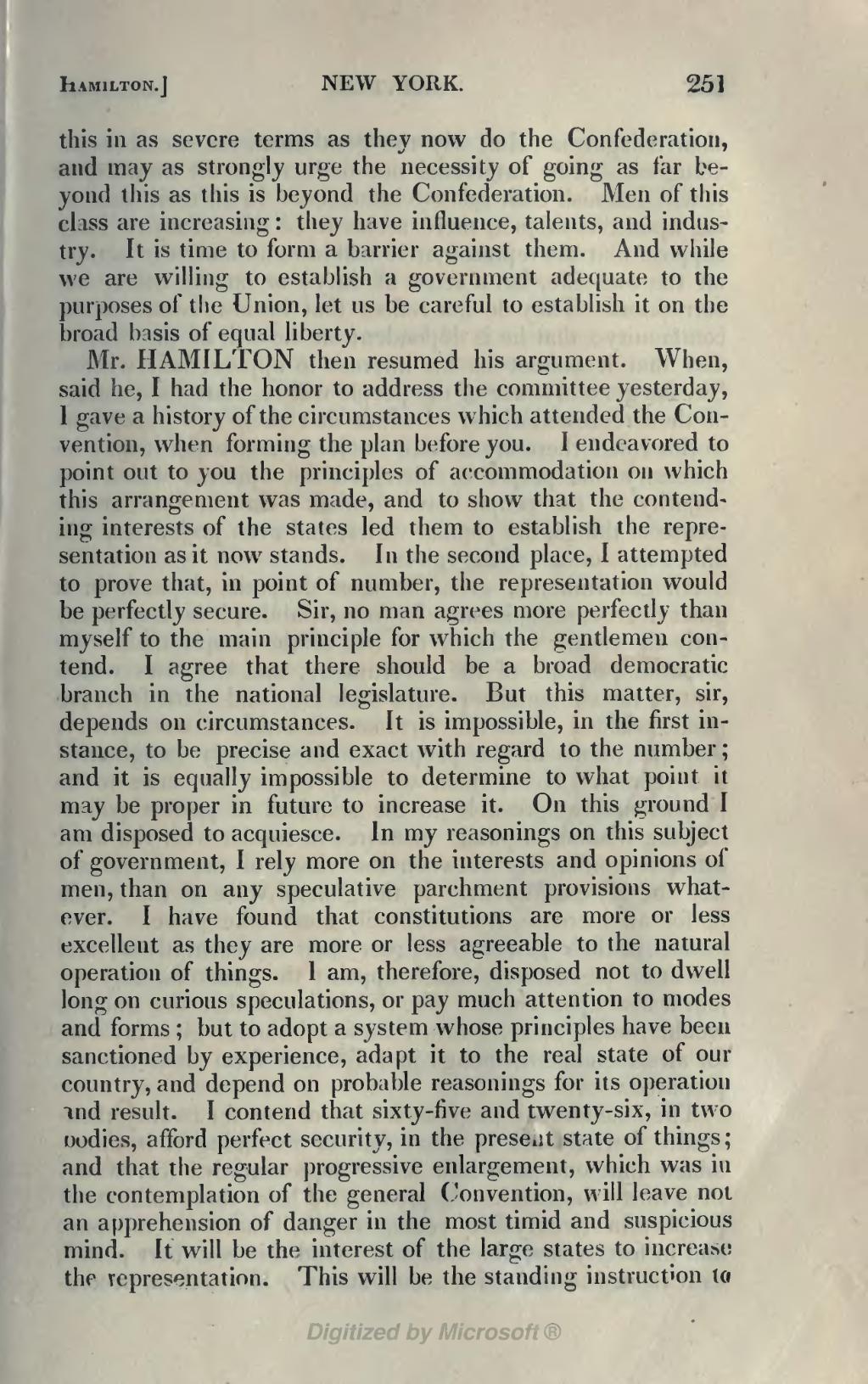this in as severe terms as they now do the Confederation, and may as strongly urge the necessity of going as far beyond this as this is beyond the Confederation. Men of this class are increasing: they have influence, talents, and industry. It is time to form a barrier against them. And while we are willing to establish a government adequate to the purposes of the Union, let us be careful to establish it on the broad basis of equal liberty.
Mr. HAMILTON then resumed his argument. When, said he, I had the honor to address the committee yesterday, I gave a history of the circumstances which attended the Convention, when forming the plan before you. I endeavored to point out to you the principles of accommodation on which this arrangement was made, and to show that the contending interests of the states led them to establish the representation as it now stands. In the second place, I attempted to prove that, in point of number, the representation would be perfectly secure. Sir, no man agrees more perfectly than myself to the main principle for which the gentlemen contend. I agree that there should be a broad democratic branch in the national legislature. But this matter, sir, depends on circumstances. It is impossible, in the first instance, to be precise and exact with regard to the number; and it is equally impossible to determine to what point it may be proper in future to increase it. On this ground I am disposed to acquiesce. In my reasonings on this subject of government, I rely more on the interests and opinions of men, than on any speculative parchment provisions whatever. I have found that constitutions are more or less excellent as they are more or less agreeable to the natural operation of things. I am, therefore, disposed not to dwell long on curious speculations, or pay much attention to modes and forms; but to adopt a system whose principles have been sanctioned by experience, adapt it to the real state of our country, and depend on probable reasonings for its operation and result. I contend that sixty-five and twenty-six, in two bodies, afford perfect security, in the present state of things; and that the regular progressive enlargement, which was in the contemplation of the general Convention, will leave not an apprehension of danger in the most timid and suspicious mind. It will be the interest of the large states to increase the representation. This will be the standing instruction to
